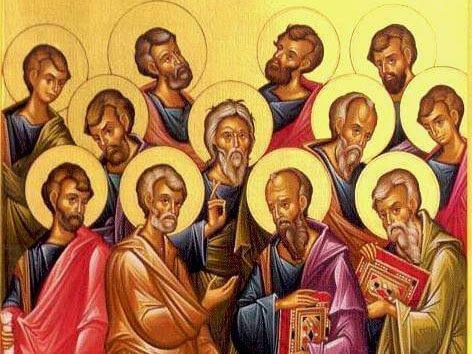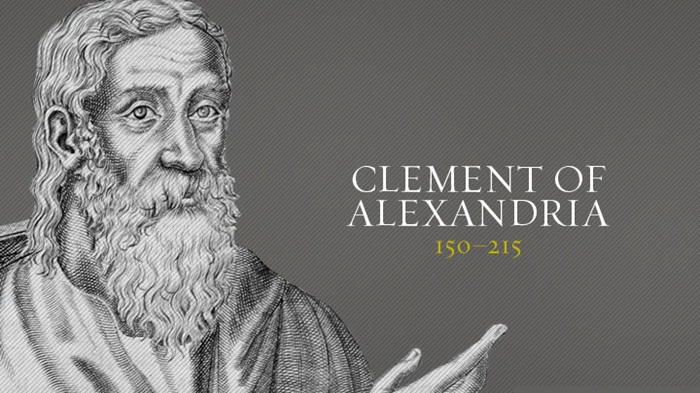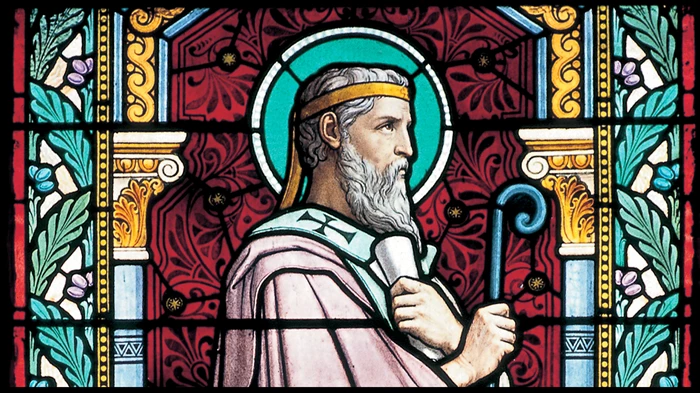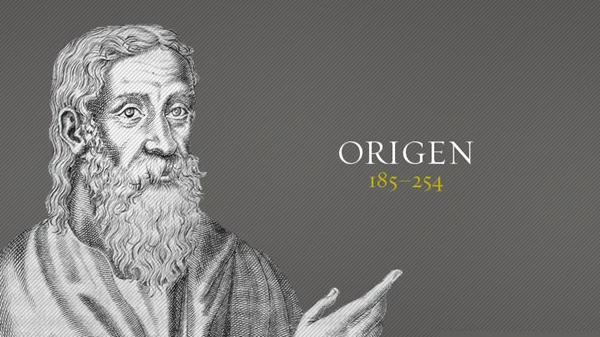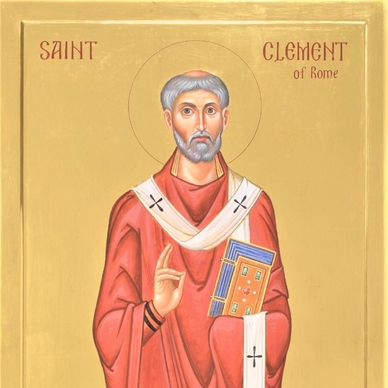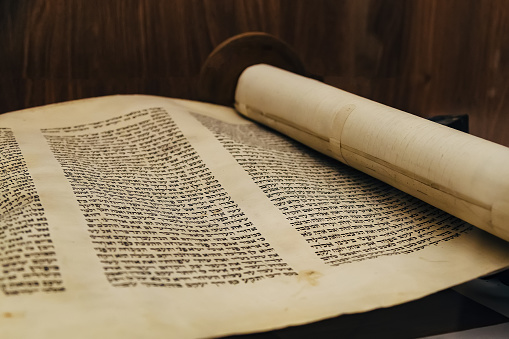In his classical book “The Mystical Theology of the Eastern Church”, Vladimir Lossky[1] wrote:
“All the development of the dogmatic battles which the church has waged down the centuries appears to us…as dominated by the constant preoccupation which the church has had to safeguard, at each moment of her history, for all Christians, the possibility of attaining to the fullness of the mystical union. So the church struggled against the Gnostics in defense of this same idea of deification as the universal end: ‘God became man that men might become gods’. She affirmed, against the Arians, the dogma of the consubstantial Trinity; for it is the Word, the Logos, who opens to us the way to union with the Godhead; and if the incarnate Word has not the same substance with the Father, if he be not truly God, our deification is impossible…”[2]
These words which were written in 1944[3] seem to be very real today in Egypt, especially for the Coptic Orthodox society. One of the dogmatic battles about “the mystical union with God” is running now in Egypt.
Lossky, in his writings, as many other theologians, sees ‘Union with God’, which is also known as deification or Theosis, as a central theme in the Eastern Orthodox spirituality and in the Early Fathers’ writings. He sees “Theosis” as the journey and the aim of the spiritual life, asceticism and “spiritual warfare” are required for this journey and for reaching this aim.[4] Many Coptic Orthodox theologians agree with these concepts, but on the other hand, some don’t agree.
In this research, we will deal with this debate. So this research will discuss the Orthodox Tradition regarding the issues “Theosis” and “Spiritual warfare”. The research paper will try to answer the question: Is there any differences between the Early Orthodox Tradition and the contemporary Coptic Theology toward these two issues or not?
To answer this question: first, the research will define the terms “Theosis” and “Spiritual warfare” according to the Early Orthodox Tradition, explaining the relation between the two issues.Second, the research will deal with the first issue, Theosis, in the contemporary debate, by following some of the writings of Father Matthew the Poor, as an Orthodox theologian, which explain the issue of “Theosis” depending on the Eastern Early Fathers’ teaching. Also, it will follow some of the writings of Pope Shenouda, the contemporary Coptic Orthodox Pope, Pope Shenouda in these writings assails the writings of Father Matthew the poor about “Theosis”.Third, in order to deal with the issue “spiritual warfare”, the research will follow some of the writings of Father Daniel, as a famous Christian writer in Egypt and around the Arab world who depends on the sayings of the early Fathers in his writings. Father Daniel was an Orthodox Coptic monk for several years before his departure from the Coptic Church because of the disagreement of Pope Shenouda about his writings regarding the issue of “spiritual warfare”. The paper will discuss this disagreement and will follow some of the writings of Pope Shenouda to understand the Coptic Pope’s point of view about the issue of “Spiritual warfare”.
Finally, the research will try to write a conclusion which expresses an understanding of the analytical reading of the whole previous writings, to find an answer to the main question: Is there any differences between the Early Orthodox Tradition and the contemporary Coptic Theology, which is represented by the writings of Pope Shenouda, toward these two issues “Theosis” and “Spiritual warfare” or not?
“Theosis” and “Spiritual warfare”:
A- Defining the terms:
The word “Theosis” is the transliteration of the Greek word meaning “Deification”.[5] Theosis can be defined as Kenneth Paul wrote:
“Theosis is a process of transformation from death in the flesh to life in the divine. It is rooted in the Christ, himself a mystery of transformation. For, in His incarnation, the divine Logos changes without changing; He becomes flesh without ceasing to be who He is… and united to Christ, humanity is changed “To those who received him He gave the power [i.e. the spirit] to become children of God” (John 1: 12) yet without changing, for humanity continues to be a creature made in the image of God.”[6]
In other words, Kenneth Leech, a contemporary Anglican priest, wrote:
“Theosis can be defined as the work of divine grace by which human nature is so transformed that it shines forth with a supernatural light and is transported above its own limits by a superabundance of glory.”[7]
The main Biblical reference to Theosis or deification is (2 Peter 1: 4): “you may be partakers of the Divine nature“. Also Jesus’ prayer, John 17, is a basic reference to Theosis, especially (17: 22, 23): “And the glory which You gave Me I have given them, that they may be one just as We are One: I in them and You in Me; that they may be made perfect in one…”. Some other basic references can be found in (Ephesians 5:25-32), about the Divine nuptial mystery, also (2 Corinthians 3:18) which shows that the final transfiguration of believers (Philippians 3:21, 1 Corinthians 15: 49) has begun already in the spiritual-sacramental life of faith.[8] We can deal with these verses, which mentioned, as some of many verses in the New Testament which related to this issue of “Theosis”. It is important to mention that some theologians find the roots of the concept of Theosis not only in the New Testament but also in the Old Testament, especially in the context of creating man in the image of God and in the context of the “Abrahamic covenant[9]“.
Briefly, we can say that Theosis is the restoration of the “image and likeness” of God, which was distorted in man by the fall. This restoration is the union with God, through the union with Jesus Christ, which begins now in our life of faith and “will be realized in its fullness only in the age to come, after the resurrection of the dead.[10]” So, Theosis is a gradually process of spiritual growing into this likeness of God, or gradually “sharing in the very being of God”. And as we reach this point about the “gradually process of spiritual growing”, we have to deal with a very important aspect of this spiritual growing, this aspect is the “Spiritual warfare”. The one who seeks spiritual growing has to practice the spiritual warfare. The early desert fathers believed that diabolical temptation comes to those who desire to grow spiritually[11], so they practice the spiritual warfare. According to this understanding, we can find a direct relation between “Theosis and the Spiritual warfare” and as David Teague wrote: “The only way one can understand spiritual warfare in the Orthodox Tradition is in the context of spiritual growth. And the Orthodox conception of spiritual growth centers around the word Theosis.“[12]
B- Theosis in the Orthodox tradition:
(Represented by some of the early Fathers’ writings)
- Irenaeus (135-203):
He is considered as the first systematic theologian of the Christian church, in a letter “Against Heresies”, he wrote about communion with God:
“the Lord . . . has redeemed us through His own blood, giving His soul for our souls, and His flesh for our flesh, and has also poured out the Spirit of the Father for the union and communion of God and man, imparting indeed God to men by means of the Spirit, and, on the other hand, attaching man to God by His own incarnation, and bestowing upon us at His coming immortality durably and truly, by means of communion with God…”[13]
In another letter, he wrote:
“It was for this end that the divine Logos was made man, and he who was the Son of God became the Son of Man, that man, having been taken into the Logos, and receiving the adoption, might become the son of God. For by no other means could we have attained to incorruptibility and immortality, unless we had been united to incorruptibility and immortality. But how could we be joined to incorruptibility and immortality unless, first, incorruptibility and immortality had become that which we also are, so that the corruptible might be swallowed up by incorruptibility and the mortal by immortality, that we might receive the adoption of sons?”[14]
According to Irenaeus, the aim of the incarnation is that we receive the adoption and attain to incorruptibility and immortality. This is the union with God.
- Athanasius (296-373)
If Irenaeus is considered as the first systematic theologian who dealt with “Theosis”, Athanasius is considered as the most famous theologian who wrote about “Theosis”. One of his statements is considered as the chief patristic reference to “Theosis”, it says:
“For He was made man that we might be made God; and He manifested Himself by a body that we might receive the idea of the unseen Father…”[15]
Also, he has many other famous statements that express the union with God and deification, some of them are:
“He Himself has made us sons of the Father, and deified men by becoming Himself man”[16]“He was not man, and then became God, but He was God, and then became man, and that to deify us.”[17]“The Word became flesh that He might make man capable of Godhead”[18]“For as the Lord… became man, so we men are deified by the Word as being taken to Him through His flesh.”[19]“The Word did come among us, and that He might hallow and deify them.”[20]“For He has become man, that He might deify us in Himself… and that we may become henceforth a holy race and partakers of the Divine nature.”[21]
- Basil the Great (328-379):
Basil the great is one of the three Cappadocian fathers, one of his famous sayings is:
“This is not the will of my real Sovereign; nor can I, who am the creature of God, and bidden myself to be God, submit to worship any creature”[22]
C- Spiritual warfare in the Orthodox tradition:
Spiritual warfare is one of the basic themes which can be noticed in the early fathers’ writings. There are many aspects of the spiritual warfare. In this research, we will deal with one aspect, “the direct diabolic wars”. And we will study some writings of Athanasius as an example of the writings of the Eastern early fathers about this issue. We will deal with two famous books by Athanasius:
(a) “The Life of Anthony”: Anthony the Great (251-356) is considered as the founder of Christian monasticism, there is a general agreement between the scholars that the book titled: “The Life of Anthony” was written by Athanasius. Athanasius wrote in this book many statements deal with the spiritual warfare, he wrote about rebuking demons some famous sentences, for example: “Despise the demons, and be in no fear of them”[23], “More and more, therefore, let the deceiver be despised by us”[24], and “We ought utterly to despise both him and his demons … we are able to despise them”[25].
Also, in this book, Athanasius told many stories about Anthony, these stories show some direct diabolic wars, and how to deal with it. In one of these stories he wrote:”Once a demon exceeding high appeared with pomp, and dared to say, “I am the power of God and I am Providence, what dost thou wish that I shall give thee?” But I then so much the more breathed upon him, and spoke the name of Christ, and set about to smite him. And I seemed to have smitten him, and forthwith he, big as he was, together with all his demons, disappeared at the name of Christ”[26]
Also Athanasius wrote many words to tell how Anthony was dealing with the devil and his demons in direct words. For example, Anthony was saying to them: “The coming of Christ hath made thee weak, and He hath cast thee down and stripped thee”[27]. Also: “Thou art very despicable then, for thou art black-hearted and weak as a child”[28].At this point, this part will be ended by the following story about St. Anthony which shows a strange direct diabolic war: “In the night … the whole of that place seemed to be shaken by an earthquake and the demons as if breaking the four walls of the dwelling seemed to enter through them, coming in the likeness of beasts and creeping things. And the place was on a sudden filled with the forms of lions, bears, leopards, bulls, serpents, asps, scorpions, and wolves… But Anthony… said, ‘If there had been any power in you, it would have sufficed had one of you come, but since the Lord hath made you weak you attempt to terrify me by numbers: and a proof of your weakness is that you take the shapes of brute beasts”[29]
(b) “The incarnation of the Word”:
In his book “The incarnation of the Word”, about the power of the name of Jesus Christ in the diabolic wars, Athanasius wrote: “For where Christ is named, and His faith, there all idolatry is deposed and all imposture of evil spirits is exposed, and any spirit is unable to endure even the name, nay even on barely hearing it flies and disappears”[30]. Also, he wrote about the weakness of the devil: “So weak has he become, that even women who were formerly deceived by him, now mock at him as dead and paralyzed”[31]
According to the previous early fathers’ sayings, we can state that “Theosis and spiritual warfare” are important themes and basic issues in the writings of the Eastern early Fathers. It is clear that Theosis, or union with God, is the aim of Christian life. Also, it is clear that in spiritual warfare, according to Athanasius and Anthony, the Christians can deal with the demons by rebuking them and despising them.In the following part of this research, we will study the contemporary situation among the Coptic Orthodox society toward these two issues.
“Theosis”: the contemporary debate:
a- The writings of Father Matthew the poor:
In his first book “The Orthodox prayer life” which was written in 1952,[32] Father Matthew the poor affirmed that, according to all the great early Fathers, we can say that Theosis is the aim of the Christian life[33].
By following the writings of Matthew the Poor, from his first book to the last one “With Christ” which published in 2006, we can say that “Theosis” is a very central theme in his writings. He specified chapters from some of his writings for this issue. For example, in his book “The Orthodox prayer life”, he wrote a chapter titled “Union with God-Theosis”[34]. In this chapter he mentioned some of the early fathers’ sayings about Theosis and mentioned also a guide to the rest of the important sayings. Also, in his book “Divine incarnation in the teaching of Cyril the Great” which was published in 1978, he wrote a chapter titled “the result of Divine Incarnation”[35]. In this chapter, he explained the relation between our “Deification” and “the incarnation of the Son of God Himself”. He explained, from the teaching of St. Cyril, that the mystery of the incarnation is our only way to Theosis.[36] In 1979, he wrote a book titled “The Pentecostal in the early Fathers’ Tradition”; he specified two chapters about “Partakers in the Divine nature”[37] Also in his book “St. Athanasius. His life and Theology” which was published in 1981, he wrote a chapter about the salvation according to St. Athanasius[38]. It can be considered that this chapter is one of the most important Arabic sources about the theology of salvation in the thought of Athanasius. Briefly, this chapter analyses the sayings and the teaching and shows that Theosis is a very central theme in the thought of Athanasius.
In general, we can find the concept of Theosis in many other books by Matthew the poor, until year 2006, like his commentaries on the gospels and his commentaries on the epistles of Paul the Apostle. Also, he wrote many articles deal with the issue of “Theosis”. Not only Matthew the poor himself; but also, his disciples wrote many books about this issue. Some of these books are:1- “The adoption in Jesus Christ according to the early Fathers”: this book explains that the adoption in the Christ is Theosis, the book study the sayings of Irenaeus, Athanasius, Hillary, Cyril the Great and Augustine.[39]2- “The incarnation and the Birth of Jesus according to the early Fathers”: this book is explaining, in the second chapter, that Theosis is the final aim of the incarnation.[40]3- “The Divine aim from creating the man according to the early Fathers”: this book is showing a lot of early Fathers’ sayings about Theosis with out any comments from the authors.[41]
b- Pope Shenouda assails the writings of Father Matthew the poor:
On the other hand, Pope Shenouda is standing against the teaching of Theosis. He assails the writings of Matthew the poor in some booklets, and finally he collected these booklets in a book titled “New Heresies”. He wrote in this book that he had to write about this issue because he found that Theosis is a very basic concept in the thought of Matthew the Poor and his disciples. And Pope Shenouda, at all, doesn’t agree that the “Deification” or “Theosis” is a patristic concept.
He sees that Theosis was the first sin of the fallen angle.[42] For the Pope, Theosis is a kind of pride and who teaches about this concept, needs to be humble and repent.[43] He assures that no one of the early Fathers wrote about the issue of Theosis. He wrote: “It is impossible that any one of the early Fathers taught about Theosis”[44]. In his book “New Heresies”, Pope Shenouda shows his disagreement with some books by Matthew the Poor, he mentions the titles of these books as follows: “The Pentecostal”[45], “Divine incarnation in the teaching of Cyril the Great”[46], “The Eucharist”[47], “That Christ may dwell in your hearts through faith”[48], “St. Paul. His life and Theology”[49], “The bridegroom”[50] and “The birth of Christ and the birth of man”[51] The main point in these books, which makes Pope Shenouda in disagreement with Matthew the Poor, is “Theosis”.
Pope Shenouda denies the teaching of Theosis, using in his denying some Islamic words; he wrote about Theosis: “May be, this is a kind of what the Muslims called “associationism with God”, worshiping gods beside God, or “el-sherk”[52]. Also, Pope Shenouda wrote many articles in “El-Keraza” magazine which show his disagreement with the concept of Theosis. In addition to his writings, Pope Shenouda taught about his disagreement with the teaching of Matthew the poor in the Coptic Orthodox Theological Seminary in Cairo and Alexandria.[53] In June 2006, El-Keraza magazine wrote: “It was said to the Pope “why don’t you ecclesiastically judge him (they mean to judge Matthew the Poor about his thoughts about Theosis)“, and the Pope replied with his famous phrase: “we don’t fight a person but we fight a certain thought (He means that he fight against the thought of Theosis)“.[54]
According to the previous study of these writings of Matthew the Poor and Pope Shenouda, this part can be ended by mention that the contemporary situation in Egypt toward the teaching of Theosis can be shown in two main directions. The first direction is represented by the writings of Father Matthew the Poor, and his disciples, this writings affirms Theosis as a very important and central theme in the Orthodox Spirituality. The other direction is represented by the writings of Pope Shenouda which deny the concept of Theosis at all from the Orthodox spirituality. By comparing these two directions to the early Fathers’ teaching; the first one, teaching of Matthew the Poor, seems to be closer to the patristic teaching than the second.
“Spiritual warfare”: the contemporary debate:
This debate about “Spiritual warfare” took place in the Christian community in Egypt during the last two decades. The debate is not about the whole concept of spiritual warfare. It concentrates around how to deal with the demons in the spiritual warfare.
The debate began in 1987, when Father Daniel, who was an Orthodox Coptic monk, published two books, the first titled “And they overcame him” and the second titled “The snare was broken”. He put the two books together in one volume titled “Satan is under the feet”. In these two books, Father Daniel taught that the true Christian can rebuke the demons and despise them in the spiritual warfare.
In his books, Father Daniel quoted many sayings of the early fathers; some of them will be mentioned, as follows:- From Cyril of Alexandria, he quoted from his commentary on the Gospel of St. Luke. He proved from the sayings of Cyril, that St. Cyril was encouraging his people to shout against Satan, proclaim the victory of Jesus over the enemies and proclaim that Satan in under our feet.[55] Also, he shows how St. Cyril taught that Jesus rebuked the demons to give us the authority to rebuke them.[56]– From St. Macarius the Egyptian, he quoted from his homilies, how St. Macarius taught about the necessity of casting out demons and rebuking them.[57]– From St. Athanasius and St. Anthony, he quoted from the book “Life of Anthony” about despising the demons.[58]– From St. John the ladder, he quoted about punishing the demons by using the name of Jesus Christ in rebuking them.[59]
Father Daniel taught in his books that we have to proclaim our authority, he wrote: “My friend, we have to proclaim our authority… we have to shout against Satan and say to him: you are a loser enemy… your place is under our feet… we are able to rebuke you… we are able to cast you out.”[60] About the necessity of Faith in the battle with the demons, he wrote: “We need the precious faith, which trust the victory of the cross, this faith which gives us brave to say to the demons: you are very weak, you have no authority on my life… in the name of the victorious Lord, Jesus, I rebuke you.”[61] Also, Father Daniel explains in his book that the believer has to face the demons which try to obstruct his life, freedom or ministry.[62] He encourages the true Christians not only to defend against the demons attacks, but also to attack the demons which try to obstruct, he encourages people to attack these demons without fear.[63]
Father Daniel wrote many other books which most of them contains parts teach about spiritual warfare. In theses parts, he assures that we can rebuke and despise the evil spirits. For example, in his book “Don’t cast away your confidence”, He wrote two chapters about the necessity of trusting the promises of God and using them in the battles. He encourages his reader to proclaim the promises of God and say it in a direct way to the evil spirits to resist any activity of the darkness.[64] Also, in his book “It’s time to break the pattern”, about using the Word of God. He wrote:
“And these signs will follow those who believe: In My name they will cast out demons (Mark16:17).Note that the Lord didn’t say that casting out demons will follow the mature Christians or the church pastors, but he said it will follow those who believe, i.e. every single believer.You have the authority to cast the evil spirits out of the domain of their activities against you. Rebuke them in the Name of Jesus… Follow the Lord’s example in your confrontation with the enemy by quoting the right scriptures from the Word of God, the sword of the Spirit.”[65]
During this period of time, the eighties, not only Father Daniel who published books about the spiritual warfare, but also Pope Shenouda published two important books about spiritual warfare; these two books were delivered first in the form of lectures in the sixties[66] and seventies[67] and then published as books in eighties. The first book was titled “Diabolic wars”, the Pope wrote in this book about the different kinds of diabolic wars as external wars. And in the second book “Spiritual warfare”, he wrote about the different kinds of internal wars.[68]
In his book “Diabolic wars”, Pope Shenouda wrote a chapter titled “How to over come diabolic wars”[69]. He mentioned many ways that help to overcome the wars. Among these many ways, he wrote a part about “Humility”[70]. He explains that we can defeat demons by being humble in our battles with them. What Pope Shenouda wrote in this chapter is not compatible with that which written by Father Daniel in his books.
In 1991, Pope Shenouda proclaimed his disagreement with the teaching of Father Daniel. He proclaimed his disagreement in two ways: First, by excommunicating Father Daniel from the Coptic Orthodox Church, and second by writing some articles in El-Keraza magazine, in this article he assailed the books by Father Daniel. Pope Shenouda wrote that the teaching of Father Daniel is not an Orthodox teaching, he wrote: “this teaching is a result of reading or translating some strange books which full of this way of pride.”[71] Pope Shenouda showed his refuse to this teaching in a clear way and asked in an exclamatory way: “Did we deify ourselves and want to deify people!”[72]
According to the previous study of these writings of Father Daniel and Pope Shenouda, we can brief that they are in disagreement about rebuking the demons, the teaching which encourages rebuking and despising the demons seem to be closer to the early Fathers’ writings than the other.
Conclusion: The aim of this research was to find an answer to the question: Is there any differences between the Early Orthodox Tradition and the contemporary Coptic Theology, which is represented by the writings of Pope Shenouda, toward the two issues “Theosis” and “Spiritual warfare” or not?
As shown previous, there are differences between the thought in the Early Fathers’ writings and the writings of Pope Shenouda. Also, it can be noticed that these differences are not on the same degree toward the two issues.
About the issue of “Theosis”, the degree of difference is a high degree. Pope Shenouda is denying that the concept is existed at all. In spite of this denying, most of the early Fathers’ writings stand to affirm that the concept of Theosis is an orthodox patristic concept. Pope Shenouda refused the writings of Father Matthew the poor about the concept of Theosis and classifies the concept as “new heresy”, while the concept according to the writings of the Early Fathers, is not “New” nor “Heresy”.
About the concept of “Spiritual warfare”, the degree of difference between the writings of Pope Shenouda and the Patristic thought is less than the first issue. Pope Shenouda affirms that the concept is existed, but he differs from the Patristic writings, and from the writings of Father Daniel, in the way that spiritual warfare can be practiced.
In his book “New Heresies”, Pope Shenouda made an unexpected connection between the teaching of Father Matthew the Poor and the teaching of Father Daniel. The Pope refers to a sentence written by Matthew the Poor, and wrote: “These words remind us of the thought of Daniel, the excommunicated monk; in his book (The snare was broken).”[73]
This unexpected connection can be understood if we notice that Pope Shenouda has the same point of view about the two issues, Theosis or rebuking the demons in the spiritual warfare, he classifies the two issues as “a kind of pride”.
Finally, if the writings of Pope Shenouda are considered to represent the contemporary Coptic theology about these two issues, it can be mentioned that there are some differences between this contemporary Coptic theology and the Patristic theology.
In the end of this research, in order to complete some farther details about this issue; it is recommended to study about the following issue: “In the absence of the concept “Theosis” from the contemporary Coptic theology, which represented by the writings of Pope Shenouda, how can we understand the concept of “Spiritual warfare” in the contemporary Coptic writings?”


